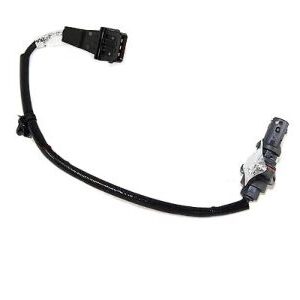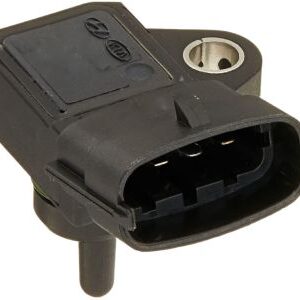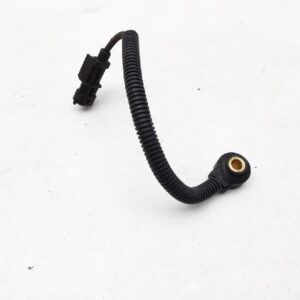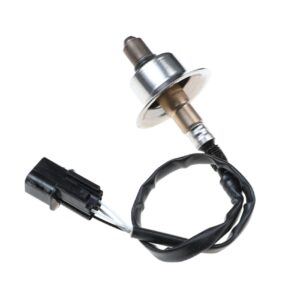Title: Cooling Your Engine: The Role of Coolant Temperature Sensors in Vehicle Performance
Introduction:
In the intricate machinery of your vehicle’s engine, there’s a small but crucial component working behind the scenes to maintain optimal operating conditions – the coolant temperature sensor. Despite its modest size, this sensor plays a vital role in regulating engine temperature, ensuring efficient combustion, and protecting against overheating. Join us as we explore the world of coolant temperature sensors, uncovering their function, significance, and the essential role they play in keeping your engine running smoothly and reliably.
Understanding Coolant Temperature Sensors:
Coolant temperature sensors, also known as engine coolant temperature (ECT) sensors or cylinder head temperature sensors, are electronic devices installed in the engine’s cooling system. Their primary function is to measure the temperature of the engine coolant and provide real-time feedback to the engine control unit (ECU) or powertrain control module (PCM).
How Do Coolant Temperature Sensors Work?
The operation of coolant temperature sensors is relatively straightforward yet critical to engine performance. As the engine operates, coolant circulates through the engine block, absorbing heat generated by combustion. The coolant temperature sensor is typically immersed in the coolant flow and measures its temperature. It generates a voltage signal based on the coolant temperature, which is then transmitted to the ECU or PCM. The ECU/PCM uses this information to adjust fuel injection timing, ignition timing, and other engine parameters to optimize performance and efficiency based on operating conditions.
Importance of Coolant Temperature Sensors:
The importance of coolant temperature sensors in modern engines cannot be overstated. These small but vital components serve several critical functions:
1. Overheating Prevention: Coolant temperature sensors play a crucial role in preventing engine overheating by continuously monitoring coolant temperature. If the coolant temperature exceeds safe operating limits, the sensor sends a signal to the ECU/PCM, triggering the activation of cooling fans or other cooling system components to dissipate excess heat and maintain proper engine temperature.
2. Efficient Combustion: Proper engine operating temperature is essential for efficient combustion and optimal fuel efficiency. Coolant temperature sensors help ensure that the engine reaches and maintains the ideal temperature range for combustion, maximizing fuel economy and reducing emissions.
3. Cold Start Performance: Coolant temperature sensors also play a role in engine cold start performance by providing feedback to the ECU/PCM about the temperature of the coolant. This allows the ECU/PCM to adjust fuel delivery and ignition timing for smooth and efficient engine starting in cold weather conditions.
4. Emissions Control: By maintaining optimal engine temperature, coolant temperature sensors help minimize harmful emissions by promoting complete combustion and reducing the production of pollutants such as nitrogen oxides (NOx) and hydrocarbons (HC).
Maintenance and Replacement:
To ensure optimal engine performance and reliability, it’s essential to properly maintain your coolant temperature sensor. Over time, coolant temperature sensors may become contaminated with dirt, coolant residue, or other deposits, leading to inaccurate readings or failure. Regular inspection and replacement of coolant temperature sensors as part of routine maintenance can help prevent issues and ensure proper function. Signs of a faulty coolant temperature sensor include engine overheating, erratic temperature gauge readings, and illuminated check engine light.
Conclusion:
In conclusion, coolant temperature sensors may be small in size, but their impact on engine performance, efficiency, and reliability is significant. By continuously monitoring coolant temperature and providing real-time feedback to the engine management system, coolant temperature sensors play a crucial role in maintaining optimal engine operating conditions, preventing overheating, and ensuring efficient combustion. So, the next time you hit the road, remember to appreciate the unsung hero silently working behind the scenes – the coolant temperature sensor.
In stock (can be backordered)
$12,851.68
Title: Cooling Your Engine: The Role of Coolant Temperature Sensors in Vehicle Performance
Introduction:
In the intricate machinery of your vehicle’s engine, there’s a small but crucial component working behind the scenes to maintain optimal operating conditions – the coolant temperature sensor. Despite its modest size, this sensor plays a vital role in regulating engine temperature, ensuring efficient combustion, and protecting against overheating. Join us as we explore the world of coolant temperature sensors, uncovering their function, significance, and the essential role they play in keeping your engine running smoothly and reliably.
Understanding Coolant Temperature Sensors:
Coolant temperature sensors, also known as engine coolant temperature (ECT) sensors or cylinder head temperature sensors, are electronic devices installed in the engine’s cooling system. Their primary function is to measure the temperature of the engine coolant and provide real-time feedback to the engine control unit (ECU) or powertrain control module (PCM).
How Do Coolant Temperature Sensors Work?
The operation of coolant temperature sensors is relatively straightforward yet critical to engine performance. As the engine operates, coolant circulates through the engine block, absorbing heat generated by combustion. The coolant temperature sensor is typically immersed in the coolant flow and measures its temperature. It generates a voltage signal based on the coolant temperature, which is then transmitted to the ECU or PCM. The ECU/PCM uses this information to adjust fuel injection timing, ignition timing, and other engine parameters to optimize performance and efficiency based on operating conditions.
Importance of Coolant Temperature Sensors:
The importance of coolant temperature sensors in modern engines cannot be overstated. These small but vital components serve several critical functions:
1. Overheating Prevention: Coolant temperature sensors play a crucial role in preventing engine overheating by continuously monitoring coolant temperature. If the coolant temperature exceeds safe operating limits, the sensor sends a signal to the ECU/PCM, triggering the activation of cooling fans or other cooling system components to dissipate excess heat and maintain proper engine temperature.
2. Efficient Combustion: Proper engine operating temperature is essential for efficient combustion and optimal fuel efficiency. Coolant temperature sensors help ensure that the engine reaches and maintains the ideal temperature range for combustion, maximizing fuel economy and reducing emissions.
3. Cold Start Performance: Coolant temperature sensors also play a role in engine cold start performance by providing feedback to the ECU/PCM about the temperature of the coolant. This allows the ECU/PCM to adjust fuel delivery and ignition timing for smooth and efficient engine starting in cold weather conditions.
4. Emissions Control: By maintaining optimal engine temperature, coolant temperature sensors help minimize harmful emissions by promoting complete combustion and reducing the production of pollutants such as nitrogen oxides (NOx) and hydrocarbons (HC).
Maintenance and Replacement:
To ensure optimal engine performance and reliability, it’s essential to properly maintain your coolant temperature sensor. Over time, coolant temperature sensors may become contaminated with dirt, coolant residue, or other deposits, leading to inaccurate readings or failure. Regular inspection and replacement of coolant temperature sensors as part of routine maintenance can help prevent issues and ensure proper function. Signs of a faulty coolant temperature sensor include engine overheating, erratic temperature gauge readings, and illuminated check engine light.
Conclusion:
In conclusion, coolant temperature sensors may be small in size, but their impact on engine performance, efficiency, and reliability is significant. By continuously monitoring coolant temperature and providing real-time feedback to the engine management system, coolant temperature sensors play a crucial role in maintaining optimal engine operating conditions, preventing overheating, and ensuring efficient combustion. So, the next time you hit the road, remember to appreciate the unsung hero silently working behind the scenes – the coolant temperature sensor.
| Warehouse | Inventory at warehouse 2 |
|---|




Get E-mail updates about our latest products and special offers.
Sensors and More is Jamaica’s ultimate online auto parts store. Established in 2020, we specialize in genuine electrical parts for Japanese, Read more…
Reviews
There are no reviews yet.